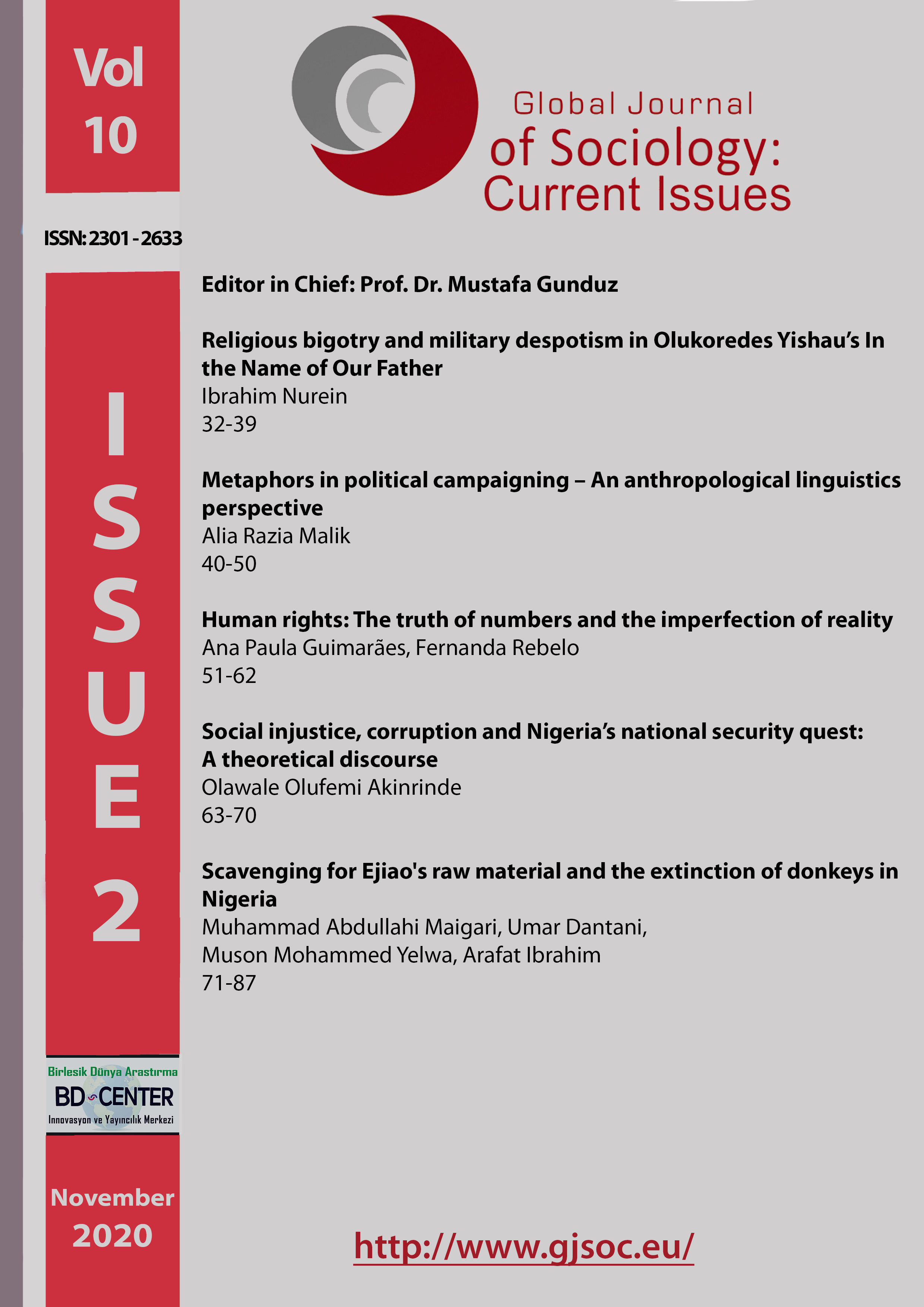Metaphors in political campaigning – An anthropological linguistics perspective
Main Article Content
Abstract
Language is a means of communication in a society. According to linguistic anthropology, a speaker is a social actor who expresses certain ideologies through language. Concepts and ideas, transmitted through language, are part of larger cultural whole in the society. Linguistic anthropology deals with language from a cultural perspective. People represent their mental realities through language which in turn is shaped by culture. Politics is a field of power and dominance. In political discourse, power is exerted through language. Political discourse is to persuade or to motivate the masses. Hence, linguistic choices are important to achieve certain objectives. In Pakistan, the general elections of 2013 were unique in the aspect as it was the first time that one elected democratic government had completed its turn of 5 years and lead towards the next election. Otherwise, the history of Pakistan is marked by incomplete tenures of democratic government and dictatorship. The elections were held on 11 May 2013 in all constituencies of Pakistan. People from all four provinces Punjab, Sindh, Khayber Pakhtoon Khawah, Balochistan, federal area and tribal area had casted their votes
Downloads
Article Details

This work is licensed under a Creative Commons Attribution 4.0 International License.
Authors who publish with this journal agree to the following terms:- Authors retain copyright and grant the journal right of first publication with the work simultaneously licensed under a Creative Commons Attribution License that allows others to share the work with an acknowledgement of the work's authorship and initial publication in this journal.
- Authors are able to enter into separate, additional contractual arrangements for the non-exclusive distribution of the journal's published version of the work (e.g., post it to an institutional repository or publish it in a book), with an acknowledgement of its initial publication in this journal.
- Authors are permitted and encouraged to post their work online (e.g., in institutional repositories or on their website) prior to and during the submission process, as it can lead to productive exchanges, as well as earlier and greater citation of published work (See The Effect of Open Access).
